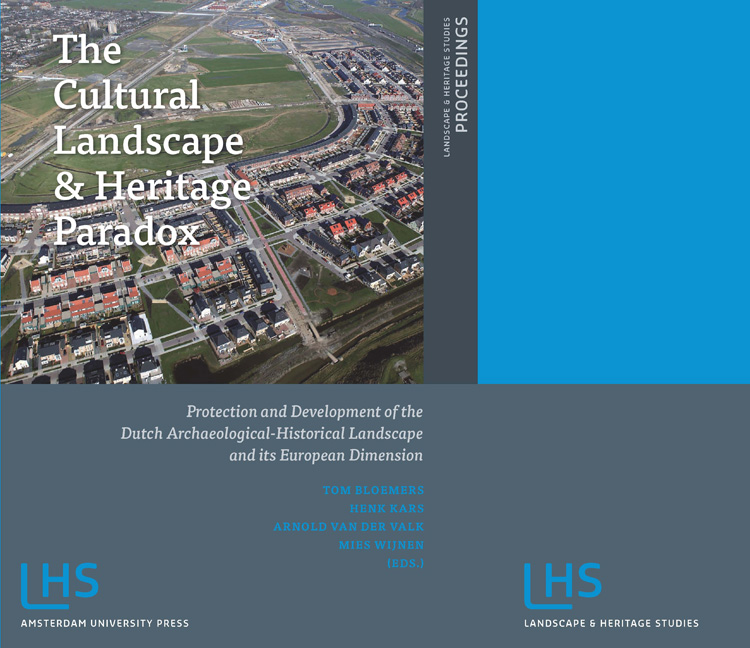 The Cultural Landscape and Heritage Paradox
The Cultural Landscape and Heritage Paradox Book contents
- Frontmatter
- Contents
- Preface
- I INTRODUCTION
- II INSIGHTS AND PROSPECTS OF ARCHAEOLOGICAL-HISTORICAL LANDSCAPE STUDIES
- III LINKING KNOWLEDGE AND ACTION
- IV IMAGINATION - FACTS AND CONSTRUCTIONS
- V SHARING KNOWLEDGE - STORIES, MAPS AND DESIGN
- VI SYNTHESIS AND CONCLUSIONS
- VII MANAGEMENT OF KNOWLEDGE
- VIII AGENDA FOR THE FUTURE
- IX SUMMARY
- X APPENDIX
- Subject Index
- Index of Places and Regions
3 - Actors and Orders: the Shaping of Landscapes and Identities
Published online by Cambridge University Press: 21 January 2021
- Frontmatter
- Contents
- Preface
- I INTRODUCTION
- II INSIGHTS AND PROSPECTS OF ARCHAEOLOGICAL-HISTORICAL LANDSCAPE STUDIES
- III LINKING KNOWLEDGE AND ACTION
- IV IMAGINATION - FACTS AND CONSTRUCTIONS
- V SHARING KNOWLEDGE - STORIES, MAPS AND DESIGN
- VI SYNTHESIS AND CONCLUSIONS
- VII MANAGEMENT OF KNOWLEDGE
- VIII AGENDA FOR THE FUTURE
- IX SUMMARY
- X APPENDIX
- Subject Index
- Index of Places and Regions
Summary
ABSTRACT
Our landscapes are shaped and ordered by the choices made by the actors who control the landscapes. This paper sets out to investigate three different types of actors, how they impose different types of order on the landscape, and how that order may or may not be easily discerned. The patterning of landscapes by different and discernable orders is likened to the mental process of remembering. Both can be understood as balancing acts between feeding in too much or too little information.
This paper primarily argues that power relations between actors are always reflected in the ordering of the landscapes. Since these relations are constantly changing, the landscape can never be at rest. Finally, therefore, four different scenarios are offered as a background for reflection upon how the orders in our landscapes may be affected by unfolding global developments or shifts. This is meant as a memento for those working with the issue of preserving historic qualities in the landscapes: history is still going on.
KEY WORDS
Natives, settlers, remote controllers; cultural heritage, memory; planning, scenario
INTRODUCTION
Landscape is a word of strong Dutch significance and a phenomenon with many interpretations. It is a constantly reconfigured frame and a medium of human aspiration and action. There is always more to the landscape than meets the eye. Our perceptions of, and actions in, the landscapes are shaped by who we are, and who we are is in many ways shaped by our relationship with our physical environment, including the landscape. In other words, there is a dynamic interplay between the formation of landscape identities and that of human identities. In the following I shall first attempt a simple grouping into three of the different positions from which we can act in the shaping and interpretation of the landscape. From there I shall move on to deal with different types of order in the landscape.
ACTORS
Natives
The natives are those who live and work in the landscape in question. They represent, at least in their own perception, a long local continuity of use and interpretation. This is not necessarily a continuity of unchanged land use, but rather a living tradition of land use and attitudes with emphasis on whatever economic activity would make sense for the natives at a particular time.
- Type
- Chapter
- Information
- The Cultural Landscape and Heritage ParadoxProtection and Development of the Dutch Archaeological-Historical Landscape and its European Dimension, pp. 53 - 66Publisher: Amsterdam University PressPrint publication year: 2010


